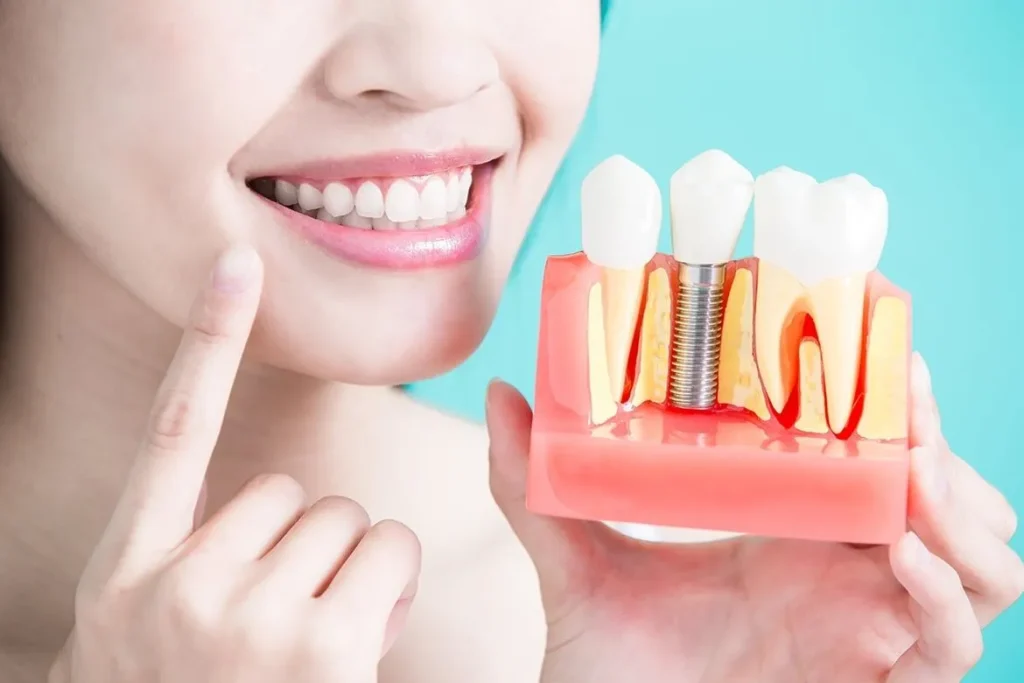Choosing Korea for dental implant surgery is a smart move—thanks to its world-class dental care, skilled specialists, and affordable costs. But getting the implant is only part of the journey. For medical tourists, proper aftercare is essential for ensuring long-term success, preventing complications, and enjoying a smooth recovery—even when far from home.
In this guide, we’ll break down what you need to know about dental implant aftercare in Korea, with tips tailored specifically for international patients.
🦷 Why Aftercare Matters for Dental Implants
Dental implants involve surgical placement of titanium posts into the jawbone, which then integrate with the bone in a process called osseointegration. This healing phase can take weeks to months depending on your treatment plan, bone quality, and overall health.
Proper aftercare ensures:
- Faster healing with minimal pain or swelling
- Reduced risk of infection
- Strong bone integration and implant stability
- Long-term success and fewer complications
For international patients, a successful recovery means returning home with peace of mind and a confident smile.
🧳 Immediate Aftercare: What to Expect After Surgery in Korea
🕐 First 24–48 Hours
- Rest is crucial. Avoid excessive movement or sightseeing immediately after surgery.
- Apply cold compresses to reduce swelling on the cheek near the surgical area.
- Avoid brushing near the implant site but maintain hygiene with gentle rinsing (as instructed by your dentist).
- Stick to soft, cold or room-temperature foods like porridge (juk), yogurt, tofu, smoothies, mashed potatoes.
🚫 What to Avoid
- Hot or spicy foods
- Alcohol and smoking
- Strenuous exercise
- Sucking through straws (can cause bleeding)
- Touching or disturbing the surgical site with tongue or fingers
💊 Medication and Pain Management
Your Korean dental clinic will usually prescribe:
- Antibiotics to prevent infection
- Pain relievers (NSAIDs or acetaminophen)
- Anti-inflammatory medication if needed
Make sure to:
- Take all medications as prescribed
- Inform your dentist if you have allergies or pre-existing conditions
- Ask for translated instructions if you’re unsure about usage
🍲 Eating and Drinking During Recovery
✅ Safe Food Options for First Few Days:
- Korean rice porridge (juk)
- Soft scrambled eggs
- Tofu soup
- Smoothies without seeds
- Soft noodles
- Pureed vegetables or fruits
⛔ Avoid:
- Crunchy snacks (nuts, chips)
- Hard fruits and vegetables
- Chewing on implant side
- Hot soups or beverages immediately post-op
🪥 Oral Hygiene Tips
- Avoid brushing directly on the implant for the first few days.
- After 48 hours, gently rinse with prescribed antiseptic mouthwash or a saltwater solution (½ teaspoon of salt in a glass of warm water).
- Use a soft-bristled toothbrush when you begin cleaning near the area.
- Avoid mouthwashes containing alcohol during early healing.
🧭 Follow-Up Care in Korea
Most Korean clinics schedule 1–2 follow-up appointments post-surgery, especially within the first week. During these visits, the dentist will:
- Check the healing progress
- Adjust or replace temporary crowns
- Provide cleaning or remove stitches (if non-dissolvable)
- Give you updated aftercare instructions for when you return home
📝 Tip for Tourists:
Ask your dentist to give you:
- A written summary of treatment
- Aftercare instructions in English
- A digital copy of your x-rays and implant placement details
- Emergency contact info for post-return care
✈️ Preparing to Fly After Dental Implant Surgery
When is it safe to fly?
Most patients can fly within 3–5 days after implant surgery, as long as:
- There’s no active bleeding or severe swelling
- Pain is well-managed
- The clinic has cleared you for travel
📦 Pack for Aftercare:
- Pain medication & antibiotics
- Cold compress packs
- Soft snacks for the plane
- Aftercare instruction sheet
- Mouthwash or salt packets
🏡 Ongoing Recovery After You Return Home
If you had a two-stage implant or full-mouth restoration, you may need to return to Korea in 3–6 months to receive the permanent crown or final prosthesis. Until then:
- Maintain excellent oral hygiene
- Stick to your dentist’s food restrictions
- Avoid grinding or pressure on the implant
- Report any pain, swelling, or looseness to your Korean clinic
Some Korean clinics offer virtual check-ins to help international patients stay on track with recovery.
📅 Long-Term Maintenance Tips
To make your implants last 15–25 years or more, follow these golden rules:
✅ Brush twice daily with a soft toothbrush
✅ Floss or use a water flosser to clean between implants
✅ Visit a local dentist for check-ups every 6 months
✅ Avoid biting hard items like ice or pens
✅ Wear a mouthguard if you grind your teeth at night
🏁 Final Thoughts: Recover Confidently with the Right Aftercare in Korea
Your dental implant journey doesn’t end in the chair—it continues through proper aftercare. Fortunately, Korea’s dental clinics are well-equipped to provide comprehensive recovery support for medical tourists, from medication and dietary advice to follow-up care and digital check-ins.
By following your Korean dentist’s aftercare plan and maintaining good oral hygiene, you’ll return home with a healthy, functional, and beautiful smile—and the confidence that it will last for years.




